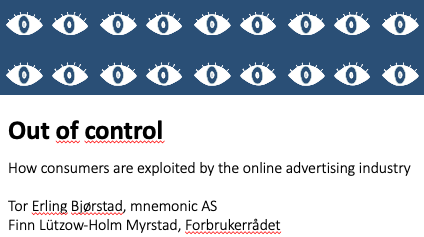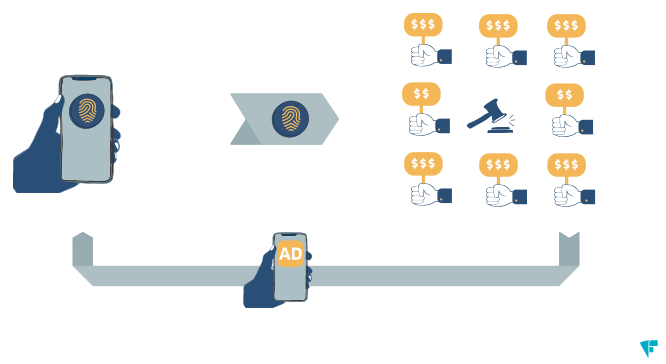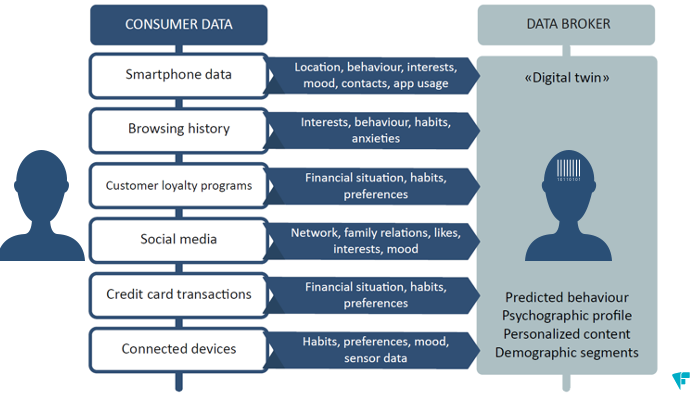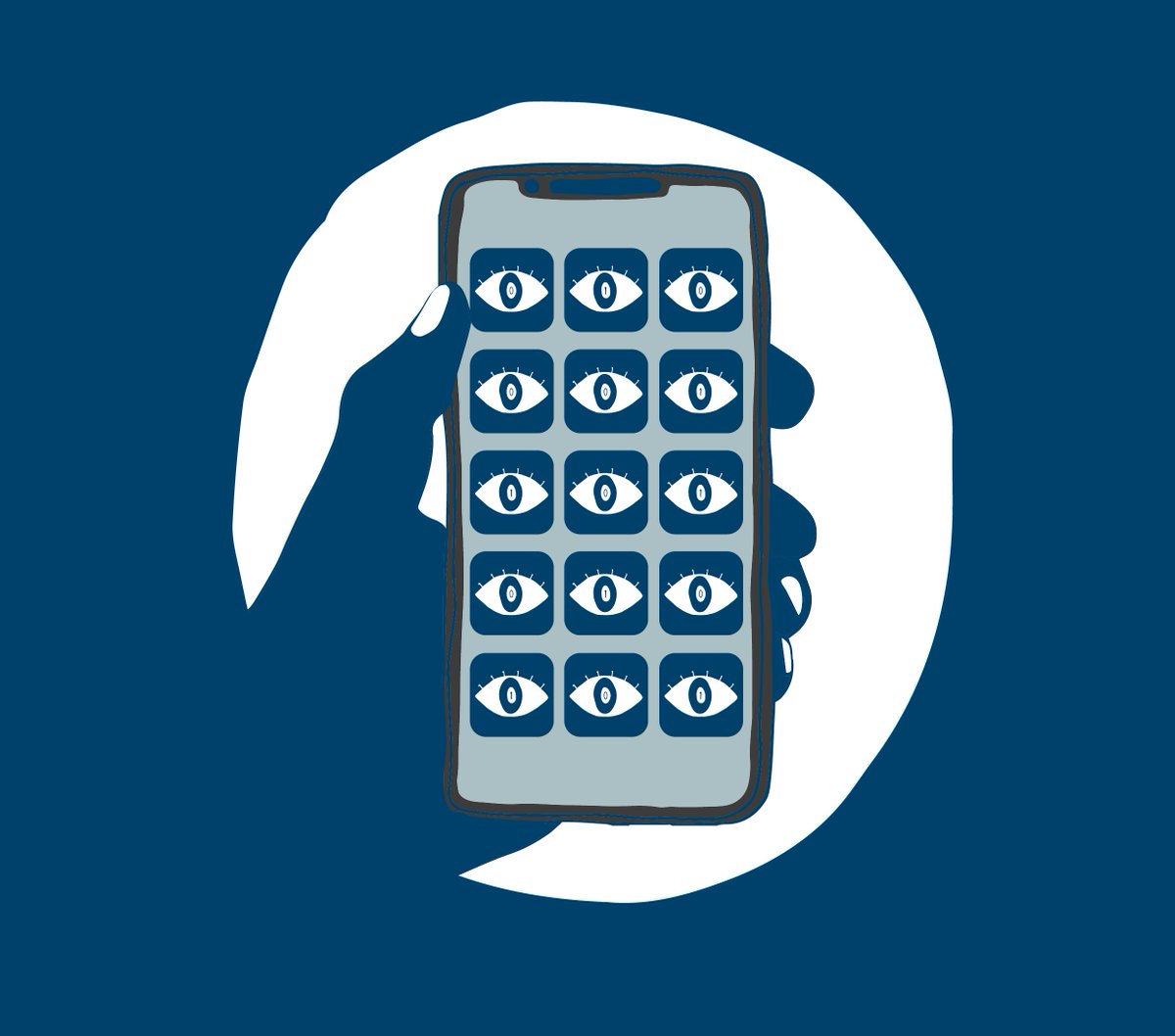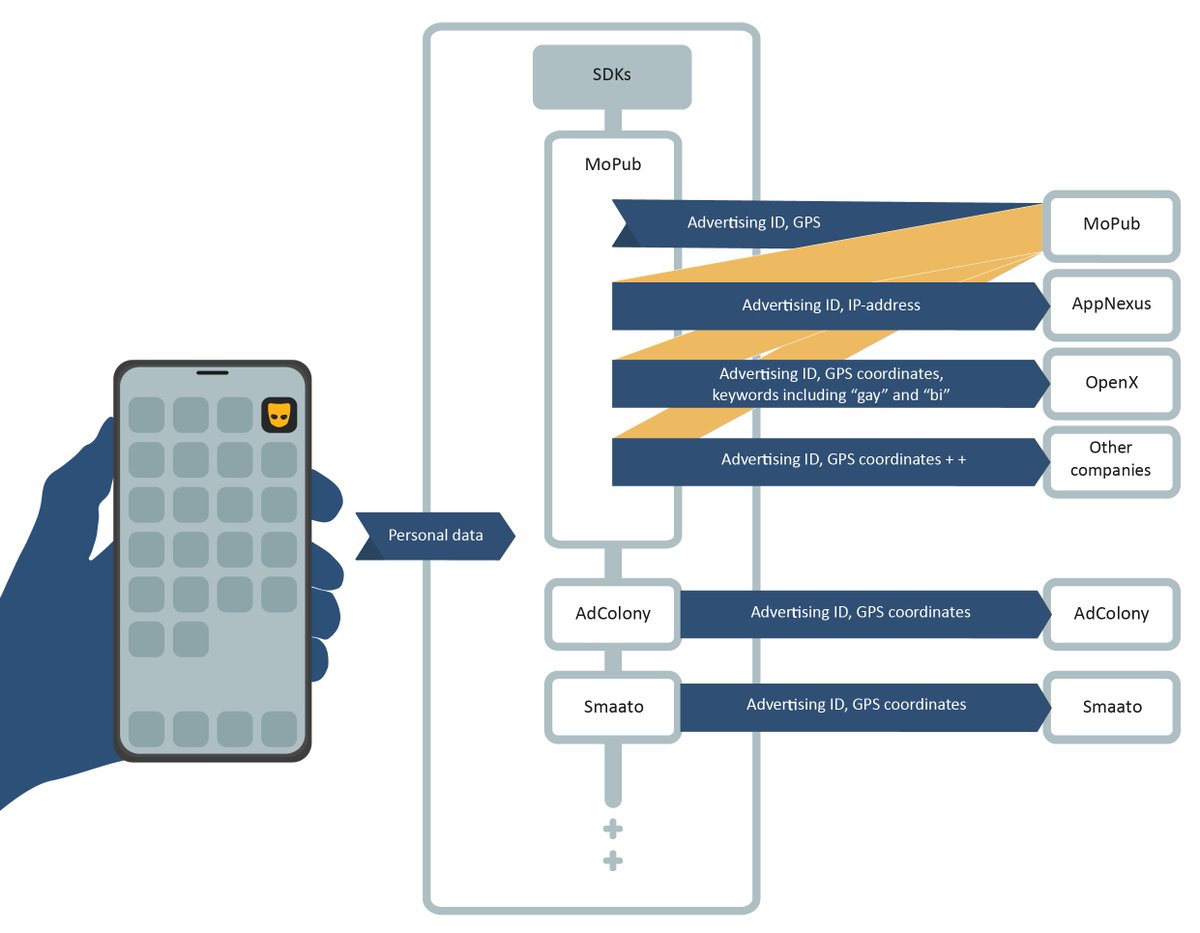
⚠️Today we are publishing a report on how the gaming industry exploits consumers using lootboxes
20 organizations in 18 European countries are joining us and call for better regulation of video games. 🎮
forbrukerradet.no/siste-nytt/loo…
#lootbox #gaming #darkpatterns #deceptivedesign
20 organizations in 18 European countries are joining us and call for better regulation of video games. 🎮
forbrukerradet.no/siste-nytt/loo…
#lootbox #gaming #darkpatterns #deceptivedesign
We have identified many problematic practices in an industry that is larger than Hollywood, and expected to grow massively in the years to come.
We need make gaming a safer & better experience for everyone.
Issues outlined below🧵
#lootboxes #lootbox #gaming
We need make gaming a safer & better experience for everyone.
Issues outlined below🧵
#lootboxes #lootbox #gaming

Problem 1: Manipulative and deceptive practices are prevalent in digital environments, and are employed to make you spend more money on the game, and to keep you playing.
#lootboxes #deceptivedesign #darkpatterns #lootbox
#lootboxes #deceptivedesign #darkpatterns #lootbox

Problem 2: Many games are deliberately designed to have boring or repetitive parts. This game design makes it easier to sell in-game items that speed up the progress for the consumer.
#gaming #lootbox
#gaming #lootbox

Problem 3: Consumers must buy the game's own virtual currency and then buy the loot boxes.
Confusing, right?
And wholly unnecessary!
Confusing, right?
And wholly unnecessary!

Problem 4: Many games show the odds of winning, as a transparency measure. However, this often leads to more confusion.
#lootbox #gaming
#lootbox #gaming

Problem 5: Aggressive marketing of loot boxes exploits consumers, restricting their ability to make free or informed choices.
#lootbox #gaming
#lootbox #gaming
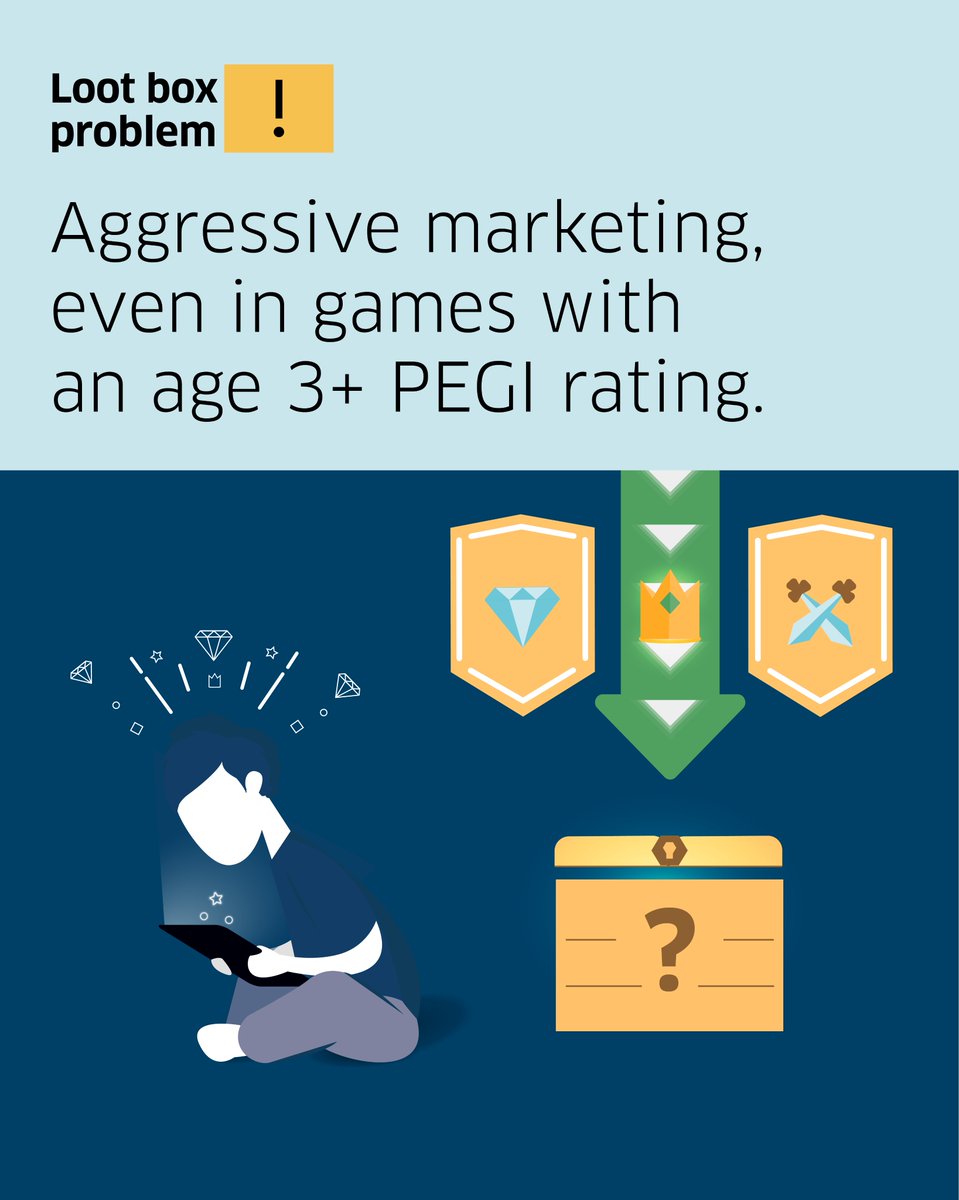
Problem 6: The use of count-down timers, clocks, and other means of creating a synthetic sense of urgency makes the consumer feel the fear of missing out. (FOMO)
#deceptivedesign #darkpatterns #lootbox #gaming
#deceptivedesign #darkpatterns #lootbox #gaming

Problem 7: When you open a loot box, the design is made to trigger excitement and a dopamine rush when the reward is unveiled. These can be addictive and use the same tricks as the casino- and gambling industry.
#gaming #lootbox
#gaming #lootbox

Problem 8: In-game items are liable to both lose their value or be supplanted by newer or shinier content.
This applies to both cosmetic items (i.e. skins) going "out of fashion" and items boosting performance that are being left behind when better items come out.
#lootbox
This applies to both cosmetic items (i.e. skins) going "out of fashion" and items boosting performance that are being left behind when better items come out.
#lootbox

Video games have avoided legal scrutiny for too long. Now is the time for firmer regulation, just like any other large industry.
Our report outlines many measures. Here are some of the highlights:
#gaming #lootbox #lootboxes

Our report outlines many measures. Here are some of the highlights:
#gaming #lootbox #lootboxes


Our report “Insert Coin: How the gaming industry exploits consumers using lootboxes” with all the supporting materials can be found here: forbrukerradet.no/report-on-loot…
#lootbox #gaming #darkpatterns #deceptivedesign
#lootbox #gaming #darkpatterns #deceptivedesign
the 20 articipating organisations are:
1. @vki_konsument (🇦🇹 Austria)
2. @activeconsumers (🇧🇬 Bulgaria)
3. @CasopisdTest (🇨🇿 Czech Republic)
4. @fbrtaenk (🇩🇰 Denmark)
5. @UFCquechoisir (🇫🇷 France)
6. @vzbv (🇩🇪 Germany)
....
1. @vki_konsument (🇦🇹 Austria)
2. @activeconsumers (🇧🇬 Bulgaria)
3. @CasopisdTest (🇨🇿 Czech Republic)
4. @fbrtaenk (🇩🇰 Denmark)
5. @UFCquechoisir (🇫🇷 France)
6. @vzbv (🇩🇪 Germany)
....
..
7. @EvangeliaKekele (🇬🇷 Greece)
8. @ekpizo (🇬🇷 Greece)
9. @Neytendasamtok (🇮🇸 Iceland)
10. @adiconsum (🇮🇹 Italy)
11. Latvijas Patērētāju Interešu Aizstāvības Asociācija - Lpiaa (Latvian National Association for Consumer Protection)
12. @Consumentenbond (🇳🇱 Netherlands)
7. @EvangeliaKekele (🇬🇷 Greece)
8. @ekpizo (🇬🇷 Greece)
9. @Neytendasamtok (🇮🇸 Iceland)
10. @adiconsum (🇮🇹 Italy)
11. Latvijas Patērētāju Interešu Aizstāvības Asociācija - Lpiaa (Latvian National Association for Consumer Protection)
12. @Consumentenbond (🇳🇱 Netherlands)
...
13. Federacja Konsumentow (🇵🇱 Poland)
14. @decoassociacao (🇵🇹 Portugal)
15. @zpsslo (🇸🇮 Slovenia)
16. @consumidores (🇪🇸 Spain)
17. @asufin_ (🇪🇸 Spain)
18. @SvKonsumenter (🇸🇪 Sweden)
19. @frc_CH (🇨🇭 Switzerland)
13. Federacja Konsumentow (🇵🇱 Poland)
14. @decoassociacao (🇵🇹 Portugal)
15. @zpsslo (🇸🇮 Slovenia)
16. @consumidores (🇪🇸 Spain)
17. @asufin_ (🇪🇸 Spain)
18. @SvKonsumenter (🇸🇪 Sweden)
19. @frc_CH (🇨🇭 Switzerland)
Coordinated and led by @Forbrukerradet (🇳🇴 Norway) and @beuc (🇪🇺 EU)
The BBC covering our report and the joint action by 20 consumer groups today, where we are calling for regulation of the gaming industry and the exploitative practices:
bbc.com/news/technolog…
#lootbox #gaming #darkpattens #deceptivedesign
cc: @beuc @EU_Justice @EP_SingleMarket
bbc.com/news/technolog…
#lootbox #gaming #darkpattens #deceptivedesign
cc: @beuc @EU_Justice @EP_SingleMarket
👏🏾13 US 🇺🇸 groups calling on the FTC to act on #lootbox & #gaming.
reuters.com/technology/gro…
@DigitalDemoc
@CommonSense
@ConsumerFed
@EPICprivacy
@fairplayforkids
@MassCouncilGH
@NCPGambling
@Parents4Privacy
@Public_Citizen
@GamblngFreeKids
@Accountable_Org
@TruthinAd
@uspirg
reuters.com/technology/gro…
@DigitalDemoc
@CommonSense
@ConsumerFed
@EPICprivacy
@fairplayforkids
@MassCouncilGH
@NCPGambling
@Parents4Privacy
@Public_Citizen
@GamblngFreeKids
@Accountable_Org
@TruthinAd
@uspirg
👏🏾👏🏾👏🏾Digital expert, @Sinan__Akdag, does an excellent job explaining #Lootbox problems at Swedish TV. Swedish Consumer Minister, Max Elger, says the measures from the report "sounds reasonable". Now, push this at EU level :) svt.se/kultur/sverige…
@beuc @SvKonsumenter @bfdep
@beuc @SvKonsumenter @bfdep
Going into the weekend after having published our report on gaming and lootboxes. So far have 33 (!) orgs. in 19 countries taken part in the joint-action, asking for better protections.
Many more are also working for change here. Now, lets make it happen!
#lootbox #gaming
Many more are also working for change here. Now, lets make it happen!
#lootbox #gaming
Much has happened since we published our report on lootboxes, and I am not able to post it all here. Buuut, let me share some highlights.
One of the really heartwarming reactions have been those form the gaming community itself:
One of the really heartwarming reactions have been those form the gaming community itself:
Also other groups have joined in the call for better regulation of gaming, such as @EticasFdn
https://twitter.com/EticasFdn/status/1533731614873763845
Spanish authorities launched a consultation on the issue in the beginning of June: consumo.gob.es/sites/consumo.…
The topic has also been discussed social media, such as on Reddit in multiple languages: reddit.com/r/Guildwars2/c…
The press coverage was also very good. This is of course not a goal in itself, but helps inform the public and ensures that the issue stays on the agenda. Here are just some tastes:
From Italy: repubblica.it/economia/dirit…
adiconsum.it/comunicati-sta…
From Italy: repubblica.it/economia/dirit…
adiconsum.it/comunicati-sta…
Spain: "Los consumidores de la UE alertan contra las cajas botín de los videojuegos" elperiodico.com/es/sociedad/20…
Netherlands: "Consumentenbond strijdt tegen lootboxes in games: ‘Manipulatief en agressief’" nederlandsenieuws.com/consumentenbon…
Greece: "Πώς η βιομηχανία βιντεοπαιχνιδιών χειραγωγεί και εκμεταλλεύεται τους καταναλωτές": thestival.gr/eidiseis/texno…
France: "Pratiques trompeuses et pochettes surprises: pourquoi des associations veulent réguler les jeux vidéo": rtl.fr/actu/sciences-…
Australia: channelnews.com.au/report-declare…
We know also that policy makers in the European Commission, the European Parliament and the FTC have the issue on their radar now, and are interested in taking action.
We will follow up together with @beuc and groups in the US (@TACD_Consumers)
#lootbox #gaming
We will follow up together with @beuc and groups in the US (@TACD_Consumers)
#lootbox #gaming
• • •
Missing some Tweet in this thread? You can try to
force a refresh



